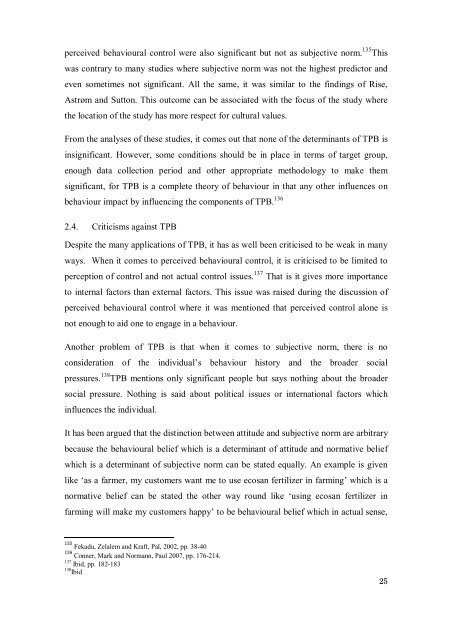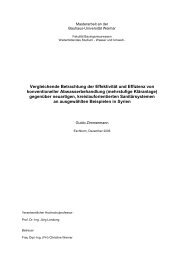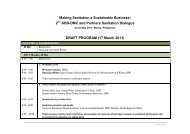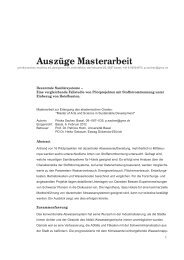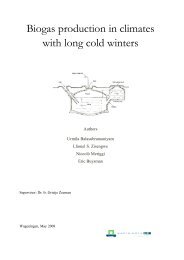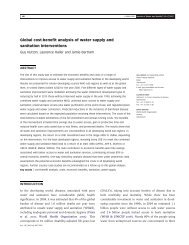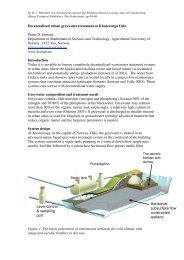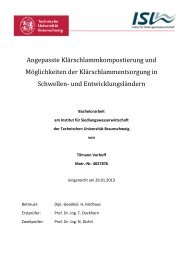A QUANTITATIVE APPROACH TO PREDICT ... - SuSanA
A QUANTITATIVE APPROACH TO PREDICT ... - SuSanA
A QUANTITATIVE APPROACH TO PREDICT ... - SuSanA
Create successful ePaper yourself
Turn your PDF publications into a flip-book with our unique Google optimized e-Paper software.
perceived behavioural control were also significant but not as subjective norm. 135 This<br />
was contrary to many studies where subjective norm was not the highest predictor and<br />
even sometimes not significant. All the same, it was similar to the findings of Rise,<br />
Astrøm and Sutton. This outcome can be associated with the focus of the study where<br />
the location of the study has more respect for cultural values.<br />
From the analyses of these studies, it comes out that none of the determinants of TPB is<br />
insignificant. However, some conditions should be in place in terms of target group,<br />
enough data collection period and other appropriate methodology to make them<br />
significant, for TPB is a complete theory of behaviour in that any other influences on<br />
behaviour impact by influencing the components of TPB. 136<br />
2.4. Criticisms against TPB<br />
Despite the many applications of TPB, it has as well been criticised to be weak in many<br />
ways. When it comes to perceived behavioural control, it is criticised to be limited to<br />
perception of control and not actual control issues. 137 That is it gives more importance<br />
to internal factors than external factors. This issue was raised during the discussion of<br />
perceived behavioural control where it was mentioned that perceived control alone is<br />
not enough to aid one to engage in a behaviour.<br />
Another problem of TPB is that when it comes to subjective norm, there is no<br />
consideration of the individual’s behaviour history and the broader social<br />
pressures. 138 TPB mentions only significant people but says nothing about the broader<br />
social pressure. Nothing is said about political issues or international factors which<br />
influences the individual.<br />
It has been argued that the distinction between attitude and subjective norm are arbitrary<br />
because the behavioural belief which is a determinant of attitude and normative belief<br />
which is a determinant of subjective norm can be stated equally. An example is given<br />
like ‘as a farmer, my customers want me to use ecosan fertilizer in farming’ which is a<br />
normative belief can be stated the other way round like ‘using ecosan fertilizer in<br />
farming will make my customers happy’ to be behavioural belief which in actual sense,<br />
135 Fekadu, Zelalem and Kraft, Pal, 2002, pp. 38-40<br />
136 Conner, Mark and Normann, Paul 2007, pp. 176-214.<br />
137 Ibid, pp. 182-183<br />
138 Ibid<br />
25


